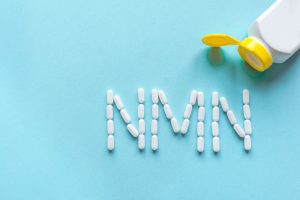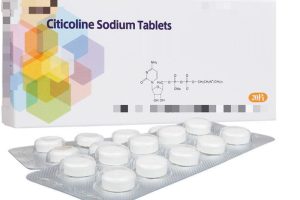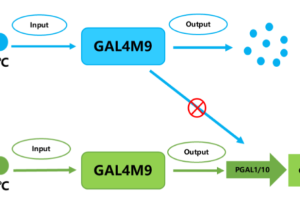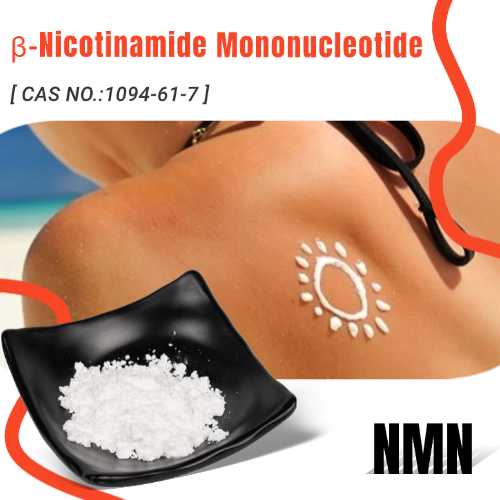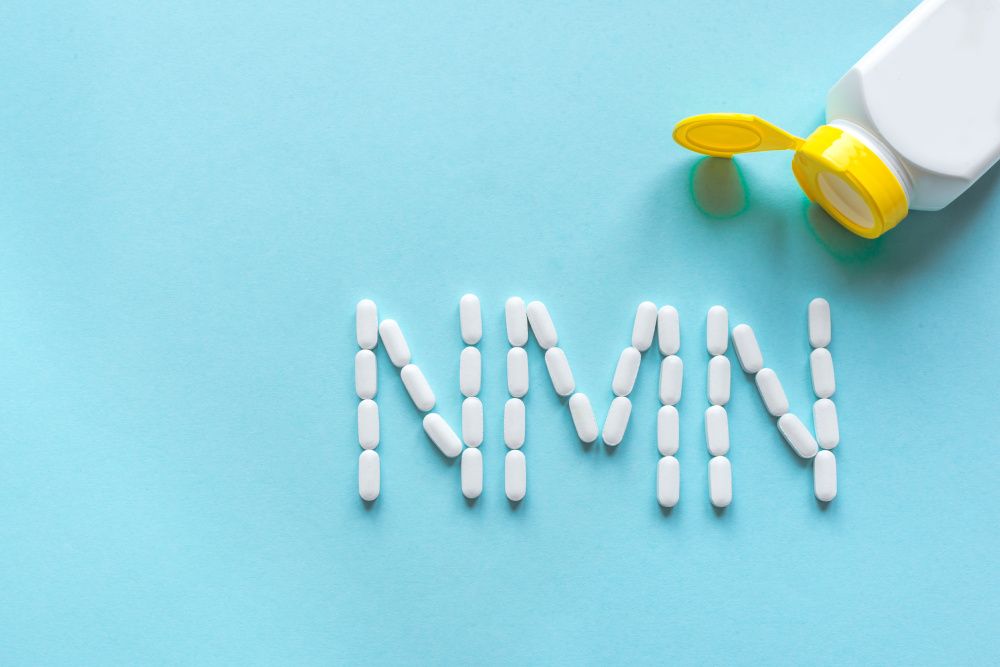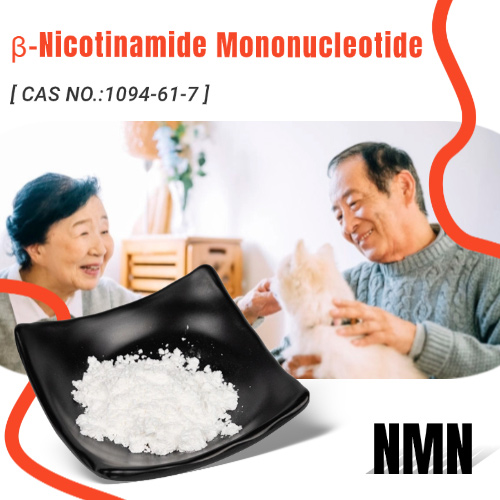A substance called NMN is in the spotlight, with claims that it may play a role in preventing and alleviating Alzheimer’s.
What is Alzheimer’s disease?
Senile dementia is a common group of chronic progressive mental decline diseases in the senile period, and occupies an important position in the spectrum of disease and death in the elderly.
Dementia is a disease that causes loss of cognitive function and memory loss, and common types include Alzheimer’s disease, vascular dementia, Lewy body dementia, prefrontal dementia, and cognitive impairment caused by diabetes, known as diabetic encephalopathy.
Alzheimer’s disease and vascular dementia are the two most common types, which together account for more than 80% of all dementia diseases.
This article will deeply explore the relationship between NMN and Alzheimer’s disease, and bring you comprehensive scientific knowledge.
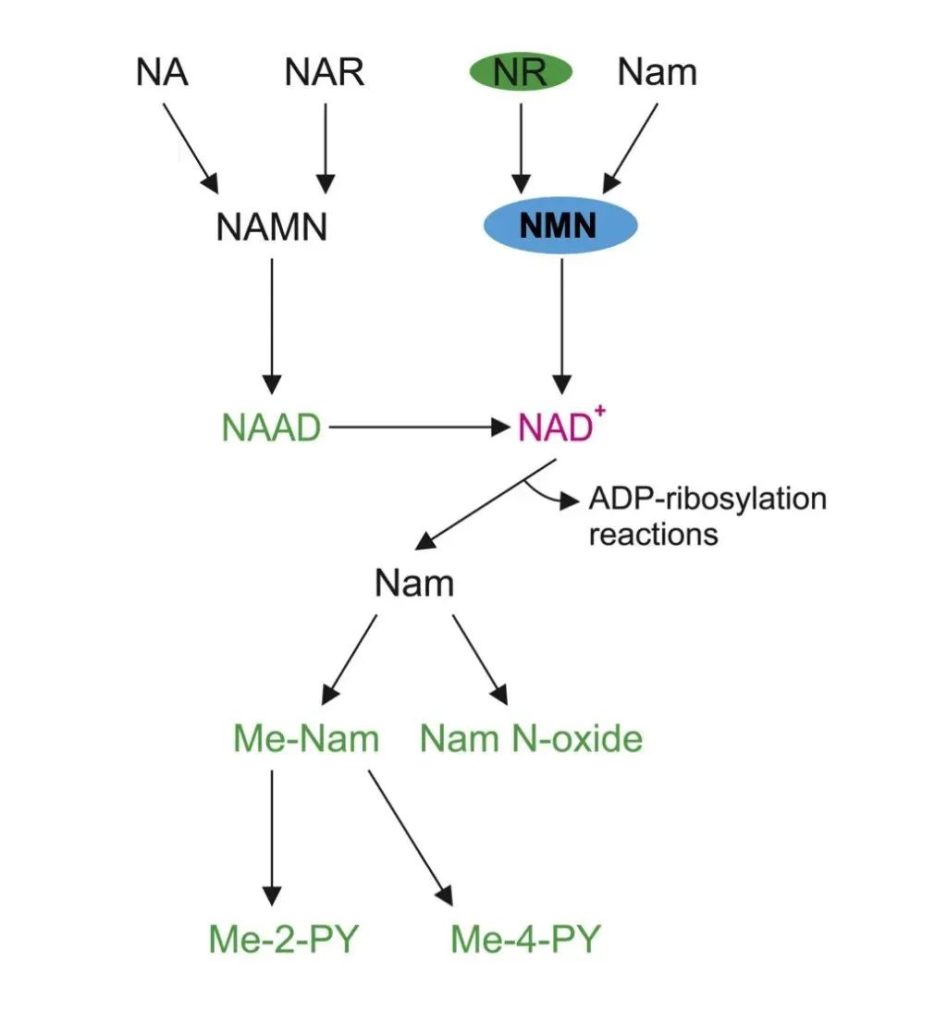
NMN and Alzheimer’s disease
NMN is a key precursor for the manufacture of nicotinamide adenine dinucleotide (NAD+), a substance that occurs naturally in the human body and is a source of cellular energy.
As people age, their NAD+ levels decline, which can lead to nuclear and mitochondrial dysfunction, which is the cause of many age-related diseases such as neurodegenerative diseases, cancer, and diabetes.
NMN has shown promise in reversing AD by reducing Aβ deposition in the brain and improving mitochondrial bioenergetics and dynamics models.

In 2021, a research team from the top University of Cambridge published a breakthrough paper in Cell Death and Disease, a supplement to the prestigious scientific journal Nature, in which they found that NAD+, a molecule essential for health and aging, inhibits the neurodegeneration of Alzheimer’s disease in experimental fruit flies.
The research team also found that people who took B vitamins, including NAD+ precursors, had a lower risk of developing Alzheimer’s.
Many immunology experts in the United States, Japan and other countries have also said that NMN can not only help people with low immunity to quickly replenish immunity and resist various viruses and diseases, but also suggest that patients with neurological diseases such as Alzheimer’s disease supplement NMN to enhance their body immunity and reduce the risk of neuropathy.
One study, published in the journal Cell Metabolism, found that rats given NMN supplements significantly improved their memory ability.
NMN not only improves short-term memory, but also improves long-term memory formation and retention.

The study found that through the intake of NAD+ precursors, the level of NAD+ in the brain of patients with Parkinson’s disease can be increased, thereby protecting the nervous system and improving the effect of Parkinson’s disease.
NMN plays a role in the prevention of Alzheimer’s disease
1, Increase NAD+ level and improve brain function
NAD+ plays a key role in regulating energy metabolism and maintaining DNA integrity in the human body.
Alzheimer’s patients often have low levels of NAD+ in the brain, and the production of NAD+ is closely associated with memory, learning and other cognitive functions.
NMN is a precursor of NAD+, and intake of NMN can increase the level of NAD+ in brain cells, thereby improving brain function and helping to prevent and alleviate the occurrence of Alzheimer’s disease.
2, Antioxidant and anti-inflammatory effects
Alzheimer’s disease is closely associated with chronic inflammation and oxidative stress. As a powerful antioxidant, NMN can reduce oxidative damage to cells and has anti-inflammatory effects, thereby protecting brain cells from inflammation and oxidative stress and helping to prevent Alzheimer’s disease.
3, Improve mitochondrial function
Mitochondria are the centers of energy production within cells, and mitochondrial function is often impaired in Alzheimer’s patients.
The intake of NMN is believed to increase the level of NAD+ in mitochondria, promote the recovery and improvement of mitochondrial function, and thus enhance the energy production and metabolic efficiency of brain cells, helping to prevent Alzheimer’s disease.
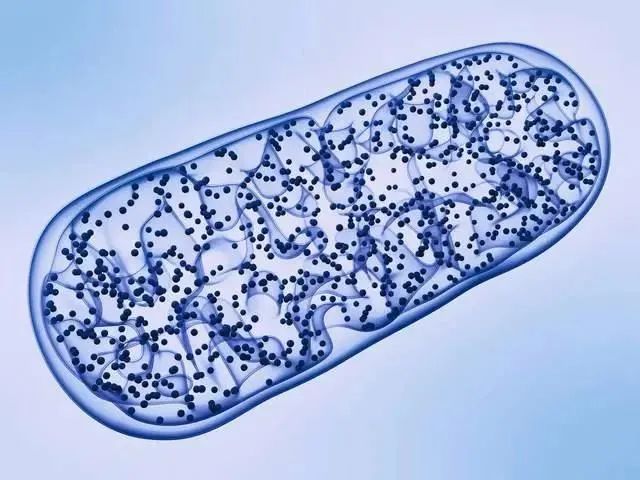
4, Regulatory gene expression
The use of NMN has been found to regulate the expression of some genes associated with Alzheimer’s disease, such as SIRT1.
SIRT1 is believed to be an important repair protein capable of repairing DNA, regulating oxidative stress and maintaining stable cell function, thereby slowing the progression of Alzheimer’s disease.
5, Clinical research support
A number of animal experiments have shown that NMN can improve the memory and learning ability of mice, extend the life span of elderly mice, and show the prevention and remission of Alzheimer’s disease.
Although there are relatively few human clinical trials directly targeting NMN for Alzheimer’s disease prevention, studies have shown that NMN has significant effects in anti-aging and improving metabolic function, and these effects indirectly support the potential of NMN for Alzheimer’s disease prevention.
For example: This study, published in March 2022, was the first to use NR in patients with Parkinson’s disease (PD).
The study enrolled 30 eligible patients with PD, with data ultimately available for 27.
Of the 13 participants in the NR group, 10 had increased levels of NAD+ in the brain, and nine of them showed a change of 10 percent above baseline levels.

Early prevention is key
If the intervention is carried out in the early or even asymptomatic stage of Alzheimer’s disease, the clinical symptoms may be delayed.
Whether the accurate diagnosis can be made in the early or even asymptomatic stage of Alzheimer’s disease is crucial, which is also a new idea for the prevention and treatment of Alzheimer’s disease.
NMN is also effective in Parkinson’s disease animals, and a variety of NMN presubstances extend the survival time of Parkinson’s disease animals and improve their mobility.
In animals without the disease, supplementing NMN concentrations reduced the risk of Parkinson’s disease.
NMN reduces the production of amyloid beta and the burden of amyloid plaques.
NMN regulates the expression of APP-lytic secretase in AD-Tg mice, including an increase in sAPPα and a decrease in sAPPβ. Previous studies have shown that phosphorylation of APP at threonine 668 promotes β-secretase cleavage of APP, resulting in more Aβ production.
SIRT1 activation promotes the processing of non-amyloid-producing α-secretory enzymes of amyloid precursor proteins by inhibiting the expression of RHO-associated kinase (ROCK1).
These results suggest that β-Nicotinamide Mononucleotide may enhance APP processing of non-amyloid proteins, thereby reducing Aβ pathology in AD-Tg mice.
Neuroinflammation, a key response to AD development, was inhibited by β-Nicotinamide Mononucleotide treatment in AD-TG mice, including the reduction of IL-6, IL-1β, and TNF-α.
These pro-inflammatory cytokines stimulate β-secretase and γ-secretase to produce more Aβ in the brain through the JNK-dependent MAPK pathway.
β-Nicotinamide Mononucleotide, at least in part, improved cognitive performance and reduced loss of amyloid plaques, synapses, beta-secretases, and neuroinflammation by inhibiting JNK activation.

For Alzheimer’s disease and other diseases related to the loss of brain nerve cells, early and timely supplementation of NMN to improve and delay is one of the most effective methods at present.



